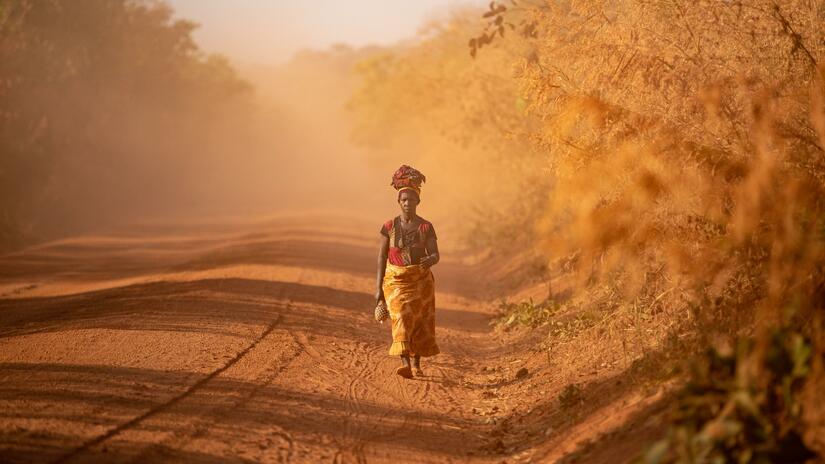Geneva, 8 July 2021 - Recent rocketing temperatures are having a severe impact on millions of people and putting lives at risk, the International Federation of Red Cross and Red Crescent Societies (IFRC) has warned.
Last week’s record-breaking heatwave in parts of the US and Canada, would have been virtually impossible without the influence of human-caused climate change. This is according to a rapid attribution analysis[1] by an international team of leading climate scientists and the Red Cross Red Crescent Climate Centre. The analysis found that climate change, caused by greenhouse gas emissions, made the heatwave at least 150 times more likely to happen.
IFRC President Francesco Rocca said: “Right now, we are witnessing heat records topple as temperatures rise, with terrifying consequences for millions of people around the world.
“We are responding on the ground, and thanks to our investment in anticipatory action, we are able to better prepare for these crises.”
From wildfires and drought to heat exhaustion and serious heat-related health risks, communities across the globe are struggling to cope with the increased temperatures and frequency of heatwaves.
“The Red Cross and Red Crescent network cannot combat the devastating impact of the climate crisis alone,” added Rocca. “There must be a concerted global effort to deal with the climate emergency, which represents the biggest threat to the future of the planet and its people.”
National Red Cross and Red Crescent Societies are working with those hit hardest by the current heatwaves and those who are most at risk from soaring temperatures - including older people, homeless people, people with COVID-19 and underlying health conditions, those living in isolated areas, and refugees and migrants.
The Head of the Red Cross Red Crescent Climate Centre, Maarten van Aalst, said: "Heatwaves topped the global charts of deadliest disasters in both 2019 and 2020. Here we have another terrible example - sadly no longer a surprise but part of a very worrying global trend. Many of these deaths can be prevented by adaptation to the hotter heatwaves that we are confronting in the Americas and around the world.”
In the US, American Red Cross teams are working in cooling centres and shelters to support people escaping the dangerous heatwaves, while the Canadian Red Cross is on hand to work with emergency services to respond to deadly wildfires.
In Europe, Red Cross volunteers are providing health and social care support to older and vulnerable people put in danger by the scorching temperatures.
In Pakistan this year, some of the hottest temperatures on record have scorched areas of Sindh province and Pakistan Red Crescent health teams have been helping people, including bike riders and others exposed to extreme heat as they are compelled to work outside earning daily wages.
In Afghanistan, the Afghan Red Crescent and the IFRC are working together to provide urgent cash and food assistance for more than 210,000 people, as one of the worst droughts in decades threatens the food and water supplies.
In the Middle East, Red Crescent Societies, including those in Iran, Iraq and Syria, have been responding to the drought affecting the lives of millions of people. In Saudi Arabia, the Red Crescent has organized a nationwide campaign on mitigating the health hazards caused by the temperatures climbing up to 50C.
As the number of climate-related emergencies increase globally each year, the IFRC and its National Red Cross and Red Crescent Societies are increasing their support to the most vulnerable communities around the world.
In 2020, 75 National Red Cross and Red Crescent Societies received nearly 37 million dollars to support 109 emergency operations - the majority of which were floods and cyclones in the Asia Pacific region and Africa.
[1] Link will be live from 00.01am CET 8 July 2021
Press release
Deadly heatwave in the Sahel and West Africa would have been impossible without human-caused climate change
Deadly heatwave in the Sahel and West Africa would have been impossible without human-caused climate change
| Press release

